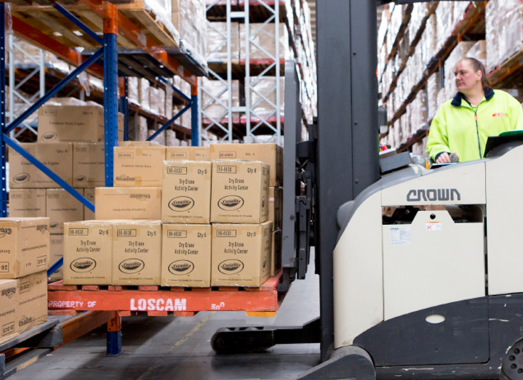Signs your business should switch to a pallet pooling system

Businesses continually seek ways to be more efficient in the supply chain world. One crucial area that is often neglected is how they handle pallets. If your company frequently undertakes goods movement and utilises pallets in Australia as a standard operation, a pooling system might be the disruptor your business has never known it required. These seven definitive signs indicate that your approach is likely holding you back, and it’s time to consider making a change.
You’re wasting too much time on tracking
Maintaining your pallets requires keeping track of their location, the number available, which ones need maintenance, and which ones are lost. This may seem tolerable when there are not many of them to deal with, but as your operation expands, it can be a nightmare. Your internal resources simply become overstretched keeping track of them. If this becomes a reality, it may be a sign that more innovative means, such as pooling, can alleviate this burden from your hands.
Your storage space is always under pressure
Space is one of the most valuable assets in a warehouse or distribution centre. When unused or broken pallets start taking up more space than needed, it reduces the space available for goods that actually generate revenue. If stacks of pallets are always in your way, or you’re spending money renting extra storage just to keep them, it’s time to think differently. A pooling system means that you receive pallets only when you require them and return them when you no longer need them. This saves space that can be used more efficiently.
Maintenance and repairs are becoming a drain
Owning pallets also entails owning their issues. Over time, they deteriorate, especially with excessive use. If your staff are wasting time repairing pallets or if you’re constantly replacing them, you may be wasting time and money that could be used more productively. In a pallet pooling arrangement, maintenance comes as part of the package. The supplier guarantees that the pallets they deliver to you are in good condition and fit for use. That saves you the concern about quality and makes fewer chances for delay caused by defective units.
Your expenses vary month to month
If your company is involved in seasonal fluctuations or variable shipping cycles, your requirement for pallets will also shift accordingly. In one month, you may require thousands, and in the next just hundreds. But when you own pallets, you pay for all of them at all times, whether they’re actually being used or not. That’s a sure indication that your present system is wasteful. Pooling allows you to align your supply of pallets with your real demand, keeping your expenses more in balance with your usage and minimising waste.
Your sustainability goals are falling behind
Many organisations today are pushing for more eco-friendly operations. If you’re trying to reduce your carbon footprint, but managing your own pallet fleet is pushing your emissions higher, that’s another sign. Pooling can help your company meet its environmental goals. Since these services often have centralised repair, washing, and reuse systems, they can reduce overall waste.
Your logistics network is expanding quickly
An expanding business translates to more warehouses, more suppliers, and maybe additional deliveries over longer distances. If your logistics network is becoming increasingly complex, attempting to handle an expanding pallet fleet alone can become unmanageable. A pooling system facilitates this by giving you access to an established network.
When there are multiple stress indicators
Not all companies hit these indicators simultaneously. Some will initially have issues with storage, while others will face more challenges with cost containment or resource stress. However, when two or three of these indicators begin to appear simultaneously, it becomes harder to dismiss. That is when it is time to transition to a more contemporary, shared pallet strategy and make a difference. The sooner you identify the signs, the more prepared you can make your people and processes for the change.
A new path for intelligent supply chains
Selecting the use of a pallet pooling model isn’t about replacing what is effective, but making it better. You don’t have to rid yourself of everything. In fact, most companies that employ pooling still use traditional models somewhere in their supply chain. But the emphasis is on providing yourself with more alternatives. By having the right mix, your chain is more responsive as well as more aligned with business objectives.
Today, efficiency is no longer a choice. It’s a necessity. Whether your organisation is facing space shortages, escalating expenses, pressure to operate, or rapid expansion, then exploring your pallet system is no longer an option—it’s a requirement. A pooling system is a proven way to align your logistics and make them more resilient. And while wooden pallets in Australia are deserving of a spot in supply chains, pooling them is even better for some.





Leave a Comment